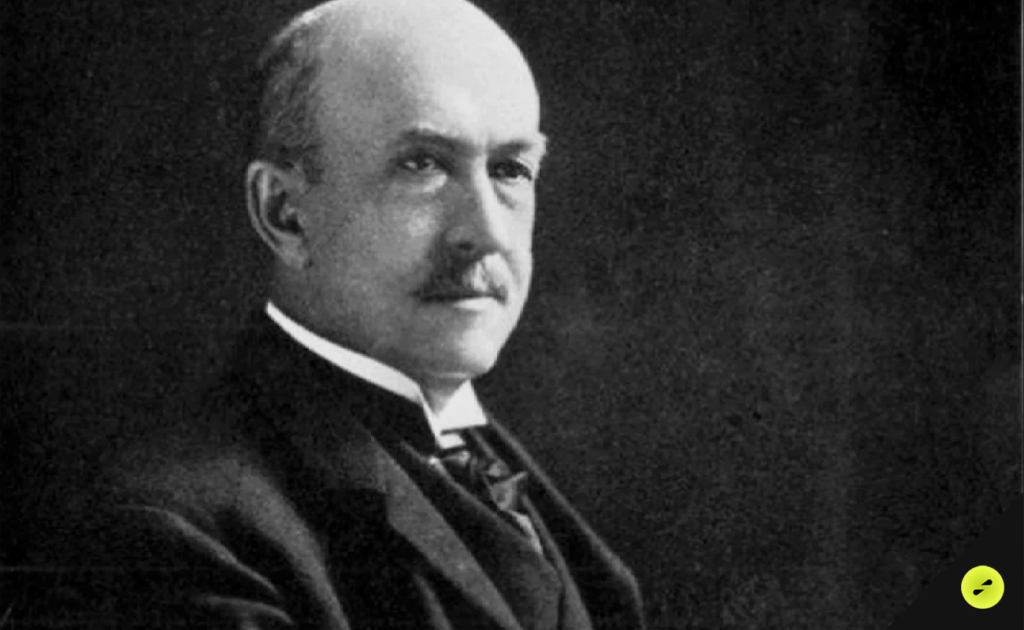William Graham Sumner was a prominent American sociologist, historian, and political economist who lived from 1840 to 1910. He is widely regarded as one of the founders of American sociology. He is best known for his contributions to social Darwinism, laissez-faire economics, and anti-imperialism. In this blog post on Zatrun.com, we will briefly explore his life, works, and legacy.

Who is William Graham Sumner?
William Graham Sumner was born on October 30, 1840, in Paterson, New Jersey. He received his education in public schools and showed great academic potential. He graduated from Yale College in 1863 with honours and was elected to the Phi Beta Kappa Society and the Skull and Bones Society.
Sumner avoided being drafted to fight in the American Civil War by paying a substitute to enlist for him. He then used the money he received from his father and friends to travel to Europe for further studies. He spent four years in Switzerland, Germany, and England. He returned to the US in 1867 and became an Episcopal minister. He served as a pastor in several churches in New York and New Jersey until 1872.
In 1871, William Graham Sumner accepted a position as a lecturer in political and social science at Yale University. He soon became a full professor and established himself as a leading scholar and teacher in his field. He taught courses on sociology, economics, political science, history, ethics, and anthropology. He also supervised many graduate students who later became prominent academics themselves, such as Irving Fisher and Thorstein Veblen.
Sumner was an active participant in public debates and controversies. He was a vocal critic of protectionism, socialism, populism, imperialism, militarism, racism, and paternalism. He defended individual liberty, free trade, free markets, limited government, and the gold standard. He also coined the term “ethnocentrism” to describe the tendency of people to judge other cultures by their own standards. He argued that ethnocentrism was the root cause of imperialism and war.
William Graham Sumner suffered a stroke in 1906 that left him partially paralysed. He retired from teaching in 1909 and died on April 12, 1910, in Englewood, New Jersey.
Sumner’s Major Works
William Graham Sumner authored numerous books and essays on various topics related to social sciences. Some of his most notable works are:
- What Social Classes Owe to Each Other (1883): In this book, Sumner argued that social classes should not interfere with each other’s affairs or try to impose their values or interests on each other. He criticised the idea of social reform or welfare as an infringement on individual rights and responsibilities. He also introduced the concept of the “forgotten man”, which he defined as “the man who pays” for the benefits of others.
- Folkways (1906): This was William Graham Sumner’s magnum opus and his most comprehensive work on sociology and anthropology. In this book, Sumner analysed the origins and functions of customs, habits, morals, laws, religions, and institutions that shape human societies. He argued that these “folkways” were not rational or deliberate creations but rather spontaneous products of human nature and social evolution. He also distinguished between “mores” (the folkways that are enforced by social pressure or sanctions) and “ethics” (the folkways that are based on moral principles or ideals).
- The Challenge of Facts (1914): This was a collection of essays that Sumner wrote on various topics such as economics, politics, history, education, religion, war, and peace. In these essays, Sumner applied his empirical and critical approach to analyse the facts and issues of his time. He challenged many popular opinions and myths that he considered to be based on ignorance, prejudice, or propaganda.
His Legacy and Criticisms
William Graham Sumner’s legacy is controversial and complex. On the one hand, he influenced many thinkers and movements in the fields of sociology, economics, anthropology and political science. He was one of the founders of the American Sociological Association and the first professor of sociology at Yale University. He also contributed to the development of the classical liberal tradition in America, along with Herbert Spencer, Thomas Jefferson and others. His writings on free trade, immigration, war and peace, social reform and cultural relativism are still relevant and debated today.
On the other hand, Sumner’s views on social Darwinism, laissez-faire capitalism and individualism have been widely criticised and rejected by many scholars and activists. He was accused of being a social elitist, a racist, a sexist and a defender of inequality and injustice. He opposed any form of government intervention or social welfare that would interfere with the natural selection of the fittest individuals and groups. He also dismissed the claims and rights of women, workers, minorities and other marginalised groups as irrational and sentimental.












